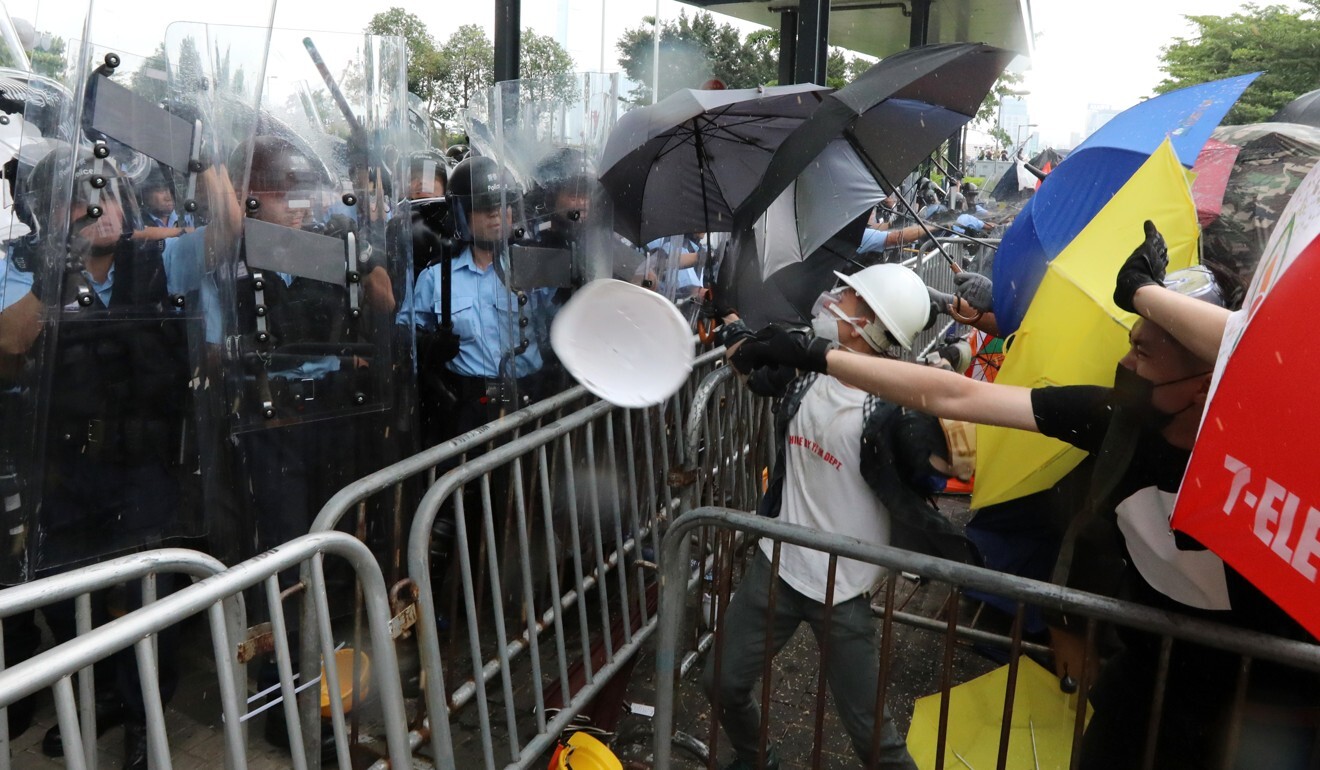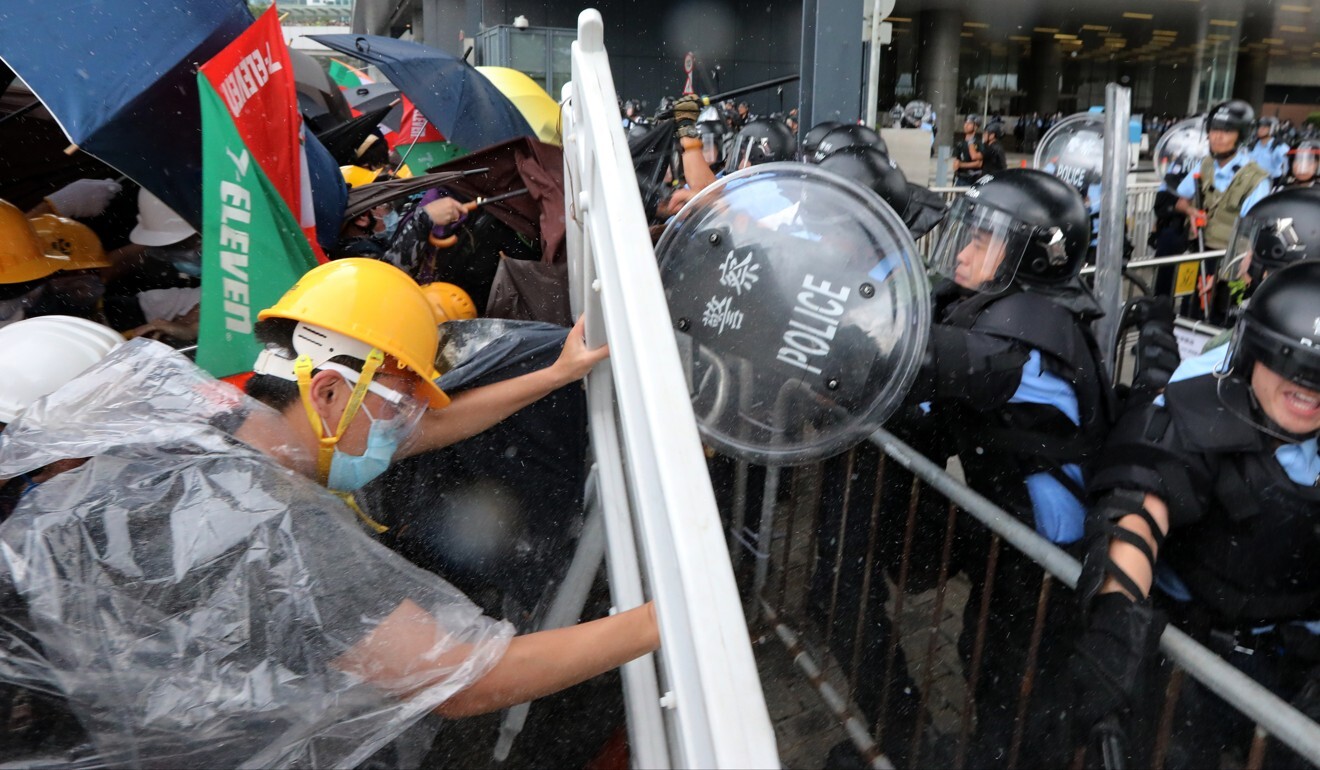
Suspend versus withdraw: How is the passage of Hong Kong extradition bill different from aborted Article 23 legislation in 2003?
- Both pieces of legislation aroused massive opposition from the public but the extradition law amendments are technically far from dead
- Carrie Lam has vowed to stay in the job and not meet the same fate as former chief executive Tung Chee-wah, who resigned in 2005
The Hong Kong government’s decision to suspend the highly unpopular extradition bill has prompted comparisons with the aborted national security Article 23 legislation in 2003 but analysts said there were critical differences between the two.
Experts on parliamentary procedures said that with a suspension, the extradition bill is technically still alive and could in theory be reintroduced by way of a straightforward notice from the government to the Legislative Council president.
It remains on the books as part of the government’s legislative agenda but its shelf life will be in sync with the current term of the Legislative Council which ends in July 2020.
Here is a look at where the two bills are similar and where they are different:
What was the public backlash to each bill?
In the extradition bill, the government argued it needed to plug legal loopholes as it lacked extradition arrangements with many countries and the bill was supposed to allow for ad hoc arrangements to transfer fugitives to jurisdictions with which it lacked a mechanism, including mainland China. Critics at home and abroad have said this would expose people in Hong Kong to being sent across the border to face political persecution or be subject to unfair trials.
As it happened: Carrie Lam backs down and ‘suspends’ Hong Kong extradition bill
The government conducted only 20 days of consultation on the bill. More than a million people marched last Sunday, according to organisers, and tens of thousand surrounded Legco on Wednesday, sparking violent clashes with police.
In 2003, the government tried to enact the national security law, a constitutional duty under Article 23 of the Basic Law, the city’s mini-constitution. Back then half a million people took to the streets.

What happened next in each instance?
For the extradition bill, the government has backed down and withdrawn the notice to resume a second reading debate. This means it will not be possible to retable it before the summer recess in July. But Chief Executive Carrie Lam Cheng Yuet-ngor has refused to withdraw the bill.
In 2003, the then Chief Executive Tung Chee-wah first delayed the second reading of the draft bill on the national security law in July, and promised to listen to public opinion and study the draft bill again. But faced with doubts, Tung withdrew the bill entirely two months later.

What followed after the bills were taken off the agenda?
For the extradition bill, the embattled Hong Kong leader said officials would listen with an open mind to views from the public about the bill, before consulting the Legco security panel.
She said the government had no timeline for when to table the bill again, and that it would not be possible this year. She has not given a clear indication of whether she would push for the law again during her term of office. Lam also did not say she would resign, despite being asked repeatedly by journalists if she would and being demanded to do so by the opposition.

In 2005, two years after the Article 23 debacle, Tung handed in his resignation to the central government, citing health reasons. Subsequent administrations have not sought to reintroduce the national security law, although Beijing has signalled its impatience with the absence of such a law.
Former Legislative Council president Andrew Wong Wang-fat said if the government did not seek to resume a second reading within this Legco term until July 2020, the bill would meet a “natural death”.
Hong Kong extradition bill explained
“Of course, the government could still resume [reading] anytime if they so wish,” Wong said.
Another legal expert, who asked to remain anonymous due to professional obligations, also said that, legally, the extradition bill is still “alive”, although politically it may see an indefinite postponement, as in 2003.
Under Legco’s house rules, any government bill can be retabled for scrutiny with 12 days’ notice.
He added Lam did not need to consult the security panel, and the government may only be binding itself to do so as a gesture of goodwill.

